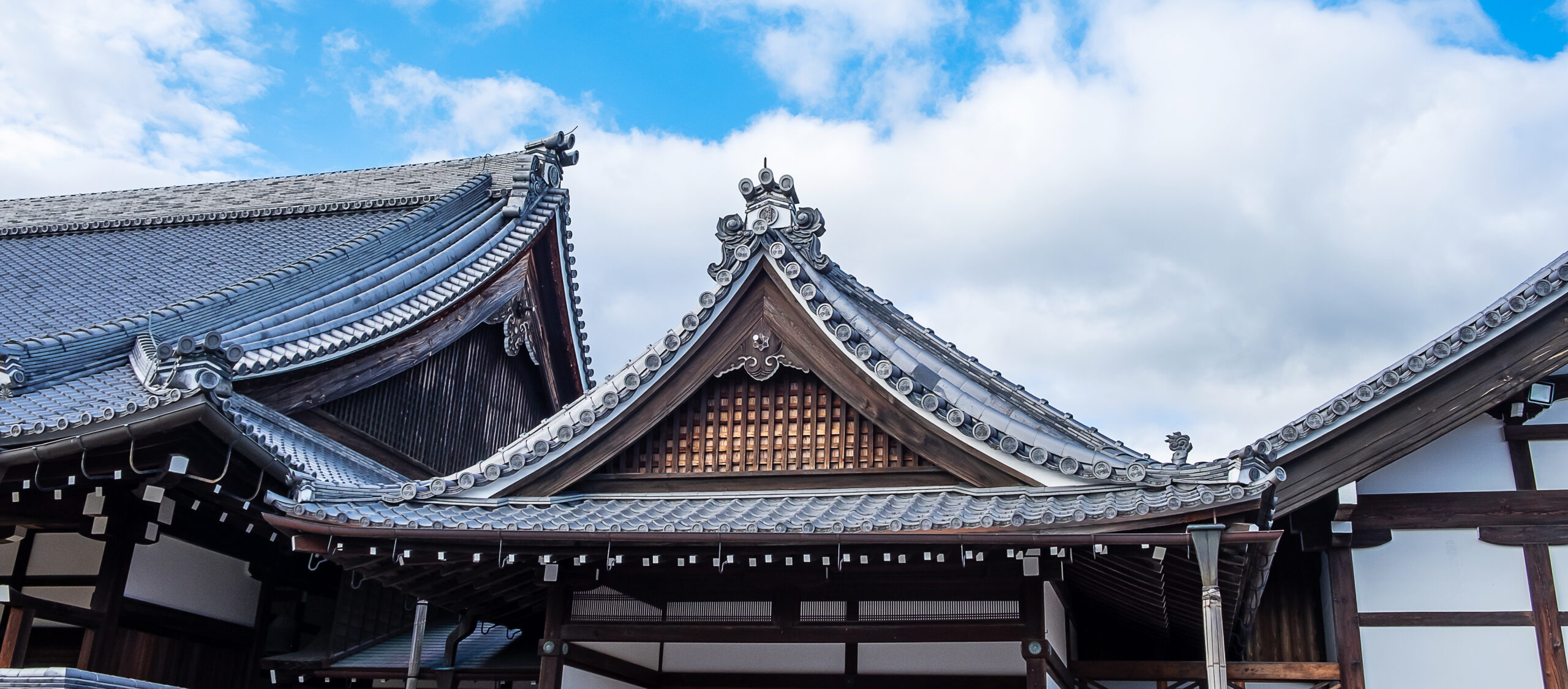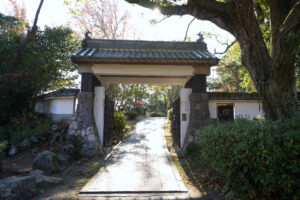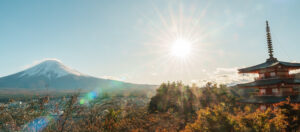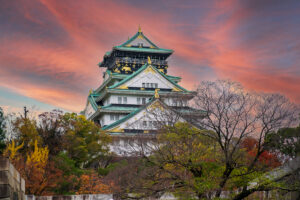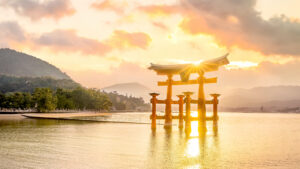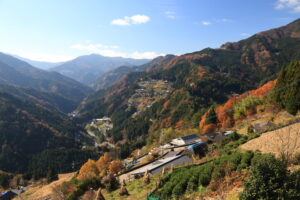Nestled in the serene landscapes of Arashiyama, Kyoto, Tenryuji Temple stands as a testament to the rich heritage of Zen Buddhism. Established in the 14th century, it not only serves as a spiritual sanctuary but also as a cultural and historical treasure trove. This article delves into Tenryuji’s profound impact on Zen philosophy, architectural elegance, lush gardens, and its ongoing significance in modern society, making it a must-visit destination for both pilgrims and tourists alike.
A Glimpse into Tenryuji Temple’s Rich History and Heritage
Tenryuji Temple was founded in 1339 by the prominent Zen master Muso Soseki, commissioned by the Ashikaga shogunate. The temple was established as a prayer site for the repose of the late Emperor Go-Daigo. Over the centuries, Tenryuji has witnessed significant historical events, including the tumultuous periods of civil strife in Japan. Despite these challenges, it has remarkably retained its status as one of the most prestigious Zen temples in the country.
The temple has undergone various renovations, particularly during the Muromachi period, which added to its aesthetic allure. In 1994, Tenryuji was designated a UNESCO World Heritage Site, cementing its importance not only as a spiritual hub but also as a cultural artifact reflecting the artistry of ancient Japan. The temple’s architecture and gardens were meticulously designed, reflecting the principles of Zen Buddhism and embodying the harmony between nature and human creativity.
In addition to its architectural grandeur, Tenryuji has been a center for Zen learning and practice. It has played a crucial role in the transmission of Zen teachings through generations, influencing both monks and lay practitioners alike. The temple’s historical significance extends to its contribution to the development of the Rinzai school of Zen, one of the principal schools of Zen Buddhism.
Visitors can immerse themselves in the rich history by exploring the temple’s various structures, including the Main Hall (Hondo), which showcases ancient artifacts and religious items. The temple’s history is also reflected in the art and calligraphy displayed throughout its grounds, providing insight into the spiritual journey of those who sought enlightenment here.
The blend of spiritual and historical elements makes Tenryuji a unique destination, where every corner tells a story of devotion, artistry, and resilience. As a living monument to Zen Buddhism, the temple continues to attract scholars, practitioners, and tourists who wish to explore its deep-rooted heritage.
With its historical foundations firmly laid, Tenryuji Temple invites visitors to engage with its past, offering a glimpse into the spiritual and cultural development of Japan through the centuries.
The Zen Philosophy Behind Tenryuji’s Tranquil Atmosphere
At the core of Tenryuji Temple lies the profound philosophy of Zen Buddhism. Zen promotes the practice of mindfulness, meditation, and an appreciation of simplicity and nature. This philosophy is embodied in the temple’s design and its serene atmosphere, which encourages visitors to slow down and engage in self-reflection.
The concept of "satori," or enlightenment, is central to Zen teachings and is deeply interwoven into the fabric of Tenryuji. The temple’s layout and gardens are designed to facilitate the experience of satori, guiding individuals towards a state of clarity and peace. The stillness of the surroundings allows one to connect with inner thoughts and attain a state of balance away from the chaos of daily life.
The teachings of Zen emphasize the importance of being present in the moment. This principle is evident in the meditative practices offered at the temple, where visitors can participate in zazen (seated meditation) sessions. These practices not only foster a deeper understanding of Zen philosophy but also cultivate a sense of community among participants, connecting them through shared experiences.
Moreover, Tenryuji’s tranquil atmosphere is enhanced by the subtle sounds of nature—rustling leaves, flowing water, and chirping birds. Such elements remind visitors of the interconnectedness of all living beings and the beauty of the natural world, reinforcing the Zen belief that enlightenment can be found in everyday experiences.
The temple also conducts regular workshops and retreats, inviting individuals to immerse themselves in the teachings of Zen. Through these programs, attendees can learn about mindfulness, meditation techniques, and the importance of living in harmony with nature, further deepening their connection to the temple’s teachings.
In essence, Tenryuji Temple serves as a sanctuary for those seeking peace, enlightenment, and a deeper understanding of Zen philosophy. Its tranquil ambiance invites visitors to explore the profound wisdom of Zen Buddhism while providing a much-needed respite from the demands of modern life.
Architectural Marvels: Exploring Tenryuji’s Design Elements
The architectural design of Tenryuji Temple is a remarkable fusion of traditional Japanese aesthetics and Zen philosophy. The temple complex is meticulously planned, with each structure reflecting a deep spiritual significance and a commitment to harmony with nature. The Main Hall, or Hondo, stands as a focal point, showcasing intricate wooden craftsmanship that is characteristic of Zen architecture.
The temple’s layout follows the principles of asymmetry and simplicity, allowing for a seamless integration with the surrounding landscape. Unlike Western architectural traditions that often emphasize grandeur, Tenryuji embodies the Zen ideal of subtle beauty, where every detail serves a purpose in promoting a sense of tranquility and introspection.
One of the most striking features of Tenryuji is its use of natural materials, including wood and stone, which resonate with the Zen concept of living in harmony with the environment. The wooden beams and tatami mat flooring in the halls create a warm and inviting atmosphere, encouraging visitors to remove their shoes and engage with the space on a personal level.
Additionally, the temple incorporates traditional Japanese elements such as sliding doors (fusuma) and shoji screens, which enhance the play of light and shadow within the space. This interplay of light is not merely aesthetic; it symbolizes the transient nature of existence, an essential teaching in Zen Buddhism.
The design of the temple gardens is equally significant. The principles of Zen gardening are evident in the carefully manicured landscapes, which facilitate meditation and contemplation. The use of gravel, rocks, and strategically placed plants serve to create a serene environment that reflects the Zen belief in simplicity and balance.
Overall, the architectural marvels of Tenryuji Temple are not just visually stunning; they embody the core principles of Zen philosophy. Every structure and garden within the temple complex serves as a reminder of the harmonious relationship between humanity and nature, inviting visitors to appreciate the beauty of simplicity and intentional design.
The Lush Gardens: Nature’s Serenity at Tenryuji Temple
The gardens of Tenryuji Temple are an integral part of its allure, offering a sanctuary of natural beauty and tranquility. These gardens, meticulously designed in the 14th century, are celebrated for their aesthetic harmony and are regarded as masterpieces of Japanese landscape design. Structured around the principles of Zen, the gardens invite visitors to engage with nature and reflect on the interconnectedness of all living beings.
One of the most iconic features of the gardens is the "Tachiwaki," a pond surrounded by lush greenery that reflects the changing seasons. This tranquil water body is not only a visual centerpiece but also serves as a metaphor for the fluidity of life—a central tenet of Zen philosophy. The gentle ripples of the pond encourage contemplation, allowing visitors to immerse themselves in the moment and experience a profound sense of peace.
Additionally, the gardens are meticulously curated with various plant species, including cherry blossoms, maple trees, and moss. Each plant is chosen for its seasonal significance, creating a dynamic landscape that transforms with the passing months. This ever-changing scenery enhances the meditative experience, reminding visitors of the impermanence of life and the beauty found in transition.
Walking paths meander through the gardens, encouraging leisurely strolls and quiet contemplation. As visitors wander through the lush landscape, they encounter carefully placed stone lanterns and carefully arranged rocks, each with symbolic meaning. These elements illustrate the Zen principles of simplicity and mindfulness, inviting individuals to reflect on their surroundings and find serenity in the subtleties of nature.
The gardens also provide a habitat for various wildlife, including birds and insects. This biodiversity enriches the experience, reminding visitors of the interdependence of all living creatures and the importance of preserving natural ecosystems. The harmonious coexistence of nature and architecture at Tenryuji Temple reinforces the Zen belief in the spiritual significance of the natural world.
In essence, the lush gardens of Tenryuji Temple serve as a living testament to the beauty of nature and its role in Zen practice. They invite visitors to slow down, breathe deeply, and engage with the environment, fostering a sense of peace and connection that transcends the hustle and bustle of modern life.
The Role of Tenryuji in the Rinzai School of Zen
Tenryuji Temple is not just an architectural wonder; it holds a significant place within the Rinzai school of Zen Buddhism, one of the most prominent Zen traditions in Japan. The temple serves as a key training center for Rinzai practitioners, fostering a deep understanding of Zen teachings and practices. Founded by the influential Zen master Muso Soseki, Tenryuji has long been a beacon of Rinzai philosophy.
The Rinzai school emphasizes the importance of direct experience and the pursuit of enlightenment through meditation. At Tenryuji, this pursuit is manifested through rigorous training programs and zazen (seated meditation) sessions led by experienced Zen masters. The temple attracts monks and lay practitioners alike, creating a vibrant community dedicated to the exploration of Zen.
Moreover, Tenryuji plays a crucial role in the transmission of Zen teachings. The temple’s lineage has produced numerous prominent Zen masters, who have carried forward the Rinzai tradition through their teachings and writings. This rich lineage not only enhances the temple’s spiritual significance but also contributes to the broader understanding of Zen Buddhism in Japan and beyond.
Visitors to Tenryuji can participate in various programs that introduce them to the core tenets of Rinzai Zen. These experiences often include guided meditation sessions, contemplative walks in the gardens, and discussions about Zen philosophy, allowing individuals to engage with the teachings on a personal level. Such immersive experiences foster a deeper appreciation for the transformative power of Zen practice.
Additionally, the temple hosts seminars, retreats, and workshops, drawing Zen practitioners from around the world. These gatherings provide a platform for sharing insights, deepening understanding, and fostering connections among individuals dedicated to the Zen path. Through these initiatives, Tenryuji continues to uphold its role as a center for Rinzai Zen practice and education.
In summary, Tenryuji’s significance within the Rinzai school of Zen extends far beyond its architectural beauty. The temple serves as a vital hub for spiritual practice, education, and community, embodying the essence of Zen teachings and inspiring generations to pursue the path of enlightenment.
Seasonal Changes: Experiencing Tenryuji Throughout the Year
One of the most enchanting aspects of Tenryuji Temple is its ability to transform with the seasons, offering visitors a unique experience throughout the year. Each season showcases a different facet of the temple’s beauty, creating a dynamic environment that reflects the cyclical nature of life—a core tenet of Zen philosophy.
In spring, the gardens of Tenryuji come alive with vibrant cherry blossoms, attracting thousands of visitors who gather to witness the breathtaking spectacle of blooming sakura. The delicate pink petals symbolize renewal and the transient nature of beauty, inviting contemplation on impermanence. During this time, the temple hosts hanami (flower viewing) events, where participants can appreciate the blossoms while engaging in traditional Japanese cultural practices.
As summer arrives, the lush greenery of the gardens creates a serene oasis, providing a welcome respite from the heat. The vibrant colors of blooming hydrangeas and other flora invite visitors to experience the soothing harmony of nature. Early mornings and late afternoons are particularly enchanting, as the soft light filters through the trees, casting gentle shadows that enhance the garden’s tranquility.
Autumn at Tenryuji is a feast for the senses, as the maple trees don fiery hues of red, orange, and gold. The temple grounds become a canvas of color, drawing visitors for autumn foliage viewing. This seasonal change serves as a reminder of the beauty found in transition and the inevitability of change, reinforcing Zen teachings about acceptance and mindfulness.
Winter brings a different kind of serenity to Tenryuji, as the gardens are often blanketed in snow, creating a serene and contemplative atmosphere. The stark beauty of the snowy landscape encourages reflection and introspection, providing a peaceful escape from the hustle of everyday life. During this quiet season, the temple often hosts special meditation sessions, inviting visitors to connect with their inner selves amidst the stillness of winter.
Throughout the year, Tenryuji Temple also hosts seasonal events and ceremonies that celebrate the changing seasons. These gatherings often include traditional performances, tea ceremonies, and meditation sessions, allowing visitors to engage with the cultural heritage of Japan while deepening their connection to Zen practice.
In conclusion, the seasonal changes at Tenryuji Temple offer a rich tapestry of experiences, each inviting visitors to explore the beauty and impermanence of life. The temple’s ability to adapt and thrive throughout the year embodies the essence of Zen philosophy, encouraging individuals to embrace change while finding peace in the present moment.
Cultural Significance: Festivals and Events at Tenryuji
Tenryuji Temple is not only a spiritual sanctuary but also a vibrant cultural hub that hosts a variety of festivals and events throughout the year. These gatherings celebrate the rich traditions of Japan, drawing locals and tourists alike to engage in spiritual and cultural experiences that resonate deeply within the community.
One of the most significant events at Tenryuji is the "Hanami" festival, held during the cherry blossom season in spring. This event attracts visitors from all over Japan and beyond, who come to admire the stunning sakura trees in full bloom. The temple organizes special rituals, performances, and tea ceremonies, allowing participants to immerse themselves in both the beauty of nature and the cultural heritage of Japan.
Another important event is the "Zazen Retreat," which invites individuals to partake in extended meditation sessions. These retreats, often held during quiet periods of the year, provide a unique opportunity for participants to deepen their practice and connect with the teachings of Zen. Guided by experienced monks, attendees are encouraged to engage in mindfulness and introspection, fostering a sense of community and shared purpose.
Throughout the year, Tenryuji also celebrates traditional Japanese festivals, such as Obon, which honors deceased ancestors. During this time, the temple hosts rituals and ceremonies that emphasize the importance of family and remembrance. These events create a sense of belonging and connection, allowing visitors to participate in age-old customs that have been passed down through generations.
The temple’s gardens are also the backdrop for seasonal tea ceremonies, where visitors can experience the art of "chanoyu" in a serene setting. Led by skilled practitioners, these ceremonies invite participants to appreciate the rituals of tea preparation and consumption, highlighting the Zen ideals of mindfulness and presence in every moment.
In addition to these cultural events, Tenryuji actively engages with the local community through educational programs and workshops. These initiatives provide opportunities for individuals to explore Zen philosophy, arts, and cultural practices, fostering a deeper understanding of the temple’s heritage.
Overall, the cultural significance of Tenryuji Temple extends far beyond its architectural beauty, as it serves as a gathering place for celebration, reflection, and learning. The festivals and events held throughout the year enrich the experience for visitors, creating lasting memories and connections to the traditions of Japan.
Meditation Practices: Finding Peace Within Tenryuji’s Grounds
Meditation is at the heart of Zen practice, and Tenryuji Temple offers a range of opportunities for individuals to explore this transformative discipline. The temple’s tranquil grounds provide an ideal setting for meditation, allowing visitors to connect with their inner selves and cultivate a sense of peace amidst the hustle and bustle of modern life.
Zazen, or seated meditation, is one of the primary practices taught at Tenryuji. Guided by experienced Zen masters, participants learn the fundamentals of zazen, including posture, breathing techniques, and the importance of mindfulness. These sessions are often held in the Main Hall or serene outdoor spaces, where the calming influence of nature enhances the meditative experience.
In addition to traditional zazen, Tenryuji also offers various meditation workshops and retreats, providing participants with the opportunity to deepen their practice. These immersive experiences often include silent meditation periods, walking meditation (kinhin), and teachings on Zen philosophy, allowing individuals to fully engage with the path of mindfulness.
The temple encourages visitors to adopt meditation as a daily practice, emphasizing its benefits for mental clarity, emotional well-being, and spiritual growth. During guided sessions, participants are encouraged to explore their thoughts without judgment, fostering a sense of acceptance and compassion towards oneself.
Moreover, the peaceful ambiance of Tenryuji creates an ideal environment for personal reflection and contemplation. Visitors can find secluded spots within the gardens or quiet corners of the temple to sit in silence, facilitating a deeper connection with nature and one’s thoughts. This invitation to explore the self is central to the Zen experience and serves as a reminder of the importance of inner peace in an increasingly chaotic world.
Additionally, Tenryuji hosts special meditation events during seasonal changes, allowing participants to align their practice with the rhythms of nature. These seasonal sessions create a unique opportunity to reflect on the impermanence of life and the beauty inherent in each moment, reinforcing the core teachings of Zen.
Overall, the meditation practices offered at Tenryuji Temple invite visitors to embark on a journey of self-discovery and mindfulness. Through guided sessions, personal reflection, and the serene surroundings, individuals can cultivate a deeper understanding of Zen principles while finding peace within themselves.
Art and Calligraphy: Masterpieces at Tenryuji Temple
Art and calligraphy play a significant role in the cultural heritage of Tenryuji Temple, reflecting the beauty and profundity of Zen philosophy. The temple houses an impressive collection of artworks that serve as both spiritual expressions and aesthetic masterpieces, inviting visitors to appreciate the artistry inherent in Zen practices.
One of the most notable aspects of art at Tenryuji is its emphasis on simplicity and minimalism, echoing the core principles of Zen. The calligraphy displayed throughout the temple showcases the skill of renowned Zen masters who have expressed their insights through brush and ink. These works often feature powerful phrases or teachings, inviting contemplation and reflection on the nature of existence and enlightenment.
The temple’s artistic offerings are not limited to calligraphy; they also include traditional paintings, many of which depict serene landscapes, natural elements, and spiritual themes. These artworks serve to create a harmonious atmosphere within the temple, enhancing the overall experience for visitors while embodying the Zen appreciation for nature and stillness.
In addition to traditional art forms, Tenryuji occasionally hosts exhibitions featuring contemporary artists who draw inspiration from Zen principles. These exhibitions create a dialogue between the past and the present, demonstrating the enduring influence of Zen on modern artistic expression. Visitors are encouraged to explore these displays, fostering a deeper understanding of the relationship between art and spirituality.
The temple also conducts workshops and classes in calligraphy and painting, allowing participants to engage in the creative process while learning about the philosophy behind these art forms. Under the guidance of skilled instructors, individuals can explore their artistic expression while reflecting on the meditative aspects of creation.
Furthermore, the integration of art into the temple’s environment enhances the overall experience for visitors, encouraging contemplation and introspection. The carefully curated artworks invite individuals to pause, observe, and reflect on the deeper meanings behind each piece, fostering a sense of connection to Zen teachings.
In summary, the art and calligraphy present at Tenryuji Temple serve as a testament to the rich cultural heritage of Zen Buddhism. Through traditional and contemporary expressions, the temple invites visitors to engage with the profound wisdom of Zen while appreciating the beauty of simplicity and creativity.
Pilgrimage and Tourism: Visiting Tenryuji Temple Today
Tenryuji Temple has become a popular destination for both pilgrims and tourists, attracting visitors from around the world who seek to experience its spiritual and cultural significance. As one of the most important Zen temples in Japan, Tenryuji offers a unique blend of historical heritage, architectural beauty, and natural tranquility
